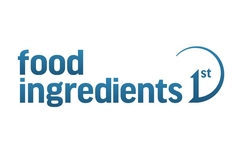
- Industry news
Industry news
- Category news
Category news
- Reports
- Key trends
- Multimedia
- Journal
- Events
- Suppliers
- Home
- Industry news
Industry news
- Category news
Category news
- Reports
- Key trends
- Multimedia
- Events
- Suppliers

In October 2008, Biolands and Barry Callebaut started a tree-planting project with the support of Sarotti and the internet portal Utopia: 250,000 cocoa seedlings were nurtured in more than 100 tree nurseries.
29/10/08 Barry Callebaut, the world’s leading manufacturer of high-quality cocoa and chocolate products, has been committed to contributing to a more sustainable cocoa industry in Africa for many years. Africa supplies about 70% of the world’s cocoa harvest.
October 2008 saw Barry Callebaut launch a tree-planting project in Tanzania for organic smallholders, while in Ivory Coast the company inaugurated its significantly expanded cocoa factory in San Pedro and a health center for cocoa farmers and their families in Goh.
In October 2008, Biolands and Barry Callebaut started a tree-planting project with the support of Sarotti and the internet portal Utopia: 250,000 cocoa seedlings were nurtured in more than 100 tree nurseries in various villages of the Mbeya region, in south-west Tanzania. In about three months, at the latest by March 2009, the resulting saplings will be strong enough for planting out in order to rejuvenate the existing cocoa plantations. The additional planting of 10,000 crop and shade trees increases biodiversity and yield. These trees will also supplement the dietary needs of the 3,000 participating farmers and their families. The small fee which the farmers have to pay for the trees serves to enhance their appreciation of the trees and encourages them to treat the trees with the necessary care – an important aspect for the success of the project.
Biolands in Tanzania is the largest African exporter of certified organic cocoa and has been selling its entire harvest of the highest quality to Barry Callebaut since 2000. In April 2008, Barry Callebaut acquired a 49% stake in Biolands. Since it was founded in 1999.
Biolands has been working directly with smallholders, who now number about 20,000, in order to guarantee them fair prices and to help them improve the quality and value of their production. This includes switching to organic farming, training in improved farming methods and also increasing family income and supplementing the dietary needs of farmers with further agricultural products such as rice, citrus fruits and mango. Neither Biolands nor Barry Callebaut own any cocoa plantations nor plan to buy any.
For consumers in Germany, the commitment to the cocoa tree project in Tanzania is immediately visible on the store shelves. Every 100-gram tablet of Sarotti BIO chocolate carries a sticker which refers to this campaign and calls on people to get involved. Anyone who follows the link www.sarotti.de/utopia leading to the campaign page will be counted as a supporter of the initiative. Sarotti is the consumer brand of Barry Callebaut in Germany. Utopia is a rapidly growing internet community, whose members are committed to strategic consumption and a sustainable lifestyle. Interested consumers can support the tree-planting project both by buying a tablet of Sarotti BIO chocolate and by visiting the Utopia website. Every tablet of chocolate sold stands for a newly planted cocoa tree, and every click on the counter on the Utopia website stands for a crop tree or shade tree (up to a maximum of 250,000 cocoa trees and a maximum of 10,000 other trees).
Also at the end of October, Barry Callebaut inaugurated new production lines in the existing ISO9001-certified cocoa factory of its subsidiary SACO in San Pedro, in the west of Ivory Coast. The investment of EUR 30 million (almost CHF 50 million) over the last two years, which has led to a tripling of the annual processing capacity to 105,000 tonnes and created another 75 permanent jobs in the factory and several hundred seasonal jobs in the bean-sorting and cleaning facility, is a sign of the long-term commitment of Barry Callebaut to Ivory Coast. It also underlines the strategy of Barry Callebaut to engage increasingly in direct purchasing of cocoa in the countries of origin rather than over the commodity exchanges, and to process a part of the cocoa in these countries.











